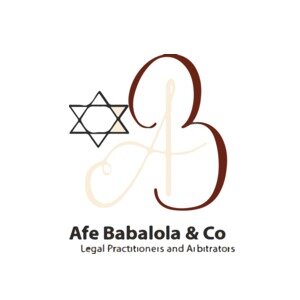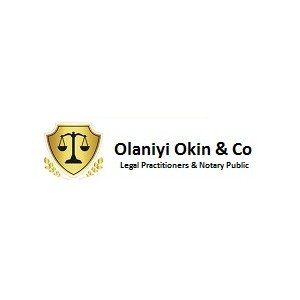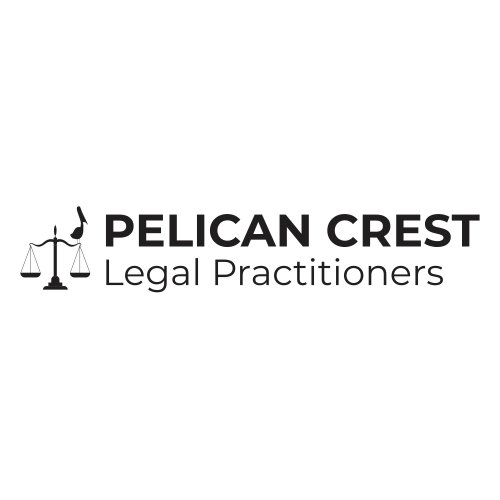Best Public-Private Partnerships (PPP) Lawyers in Ibadan
Share your needs with us, get contacted by law firms.
Free. Takes 2 min.
List of the best lawyers in Ibadan, Nigeria
About Public-Private Partnerships (PPP) Law in Ibadan, Nigeria
Public-Private Partnerships (PPP) are collaborative arrangements where the public sector partners with private sector entities to finance, construct, and operate public infrastructure or provide public services. In Ibadan, which is the capital of Oyo State and one of the largest cities in Nigeria, PPPs are increasingly used to address the growing need for improved infrastructure and efficient service delivery. Projects may include roads, markets, water supply, energy, healthcare facilities, and educational institutions. The legal framework governing PPPs in Ibadan is influenced by federal laws, Oyo State laws, and policies of individual ministries and agencies overseeing PPP projects.
Why You May Need a Lawyer
Entering into a PPP arrangement involves complex legal, commercial, and technical considerations. You may need a lawyer in the following circumstances:
- Reviewing or drafting project agreements and contracts between public entities and private partners
- Navigating regulatory approvals and licensing procedures
- Ensuring compliance with procurement processes
- Protecting your interests in negotiation and dispute resolution
- Advising on tax, land acquisition, financing and risk allocation issues
- Guidance on performance obligations and key performance indicators (KPIs) in contracts
- Representing your interests before regulatory bodies or during project monitoring
- Managing environmental and community impacts of PPP projects
Whether you represent a government agency, a private investor, or an interested stakeholder, legal expertise helps you make informed decisions and avoid costly mistakes.
Local Laws Overview
PPP arrangements in Ibadan are governed by a mix of federal and state legislation, regulations, and guidelines. Key legal components include:
- Infrastructure Concession Regulatory Commission (ICRC) Act (Federal Law): Governs PPPs involving federal infrastructure and provides standards for concessions and contracts.
- Oyo State Public Private Partnership Law: This specific law lays out the framework for who can participate in PPPs, the types of projects allowed, and the roles of state and local government agencies.
- Procurement Laws: Both Oyo State and federal procurement laws impact how projects are advertised, negotiated, and awarded. Compliance ensures transparency and accountability.
- Land Use Act: Regulates how land is acquired or transferred for PPP projects, critical in urban areas like Ibadan.
- Tax and Investment Incentives: Laws and regulations that impact the fiscal viability of PPP projects, such as tax reliefs or waivers, and incentives for private sector participation.
- Dispute Resolution Mechanisms: Legal procedures for resolving PPP disputes, which may include mediation, arbitration, or litigation in Nigerian courts.
The involvement of multiple government layers means compliance with both state and federal regulations may be required, depending on the size and scope of the project.
Frequently Asked Questions
What is a Public-Private Partnership (PPP)?
A PPP is a legal and business arrangement where a government body collaborates with a private company to develop and manage public infrastructure or services for an agreed period, sharing risks and rewards.
Which laws regulate PPP projects in Ibadan?
PPP projects in Ibadan are primarily regulated by the Oyo State Public Private Partnership Law, relevant federal legislation such as the ICRC Act, and procurement and land-related laws.
Who can participate in PPPs in Ibadan?
Eligible participants include government agencies, registered private companies, international investors, and, in some cases, non-profit organizations depending on the project specifics.
What types of projects can be developed through PPPs in Ibadan?
Typical projects include roads, public markets, hospitals, schools, water supply, energy, affordable housing, and waste management infrastructure.
What makes PPP contracts different from standard government contracts?
PPP contracts are usually longer term, involve complex risk-sharing mechanisms, performance-based payment structures, and often include requirements for private financing and operation.
How are risks allocated in PPP projects?
Risks are shared based on the capacity to manage them efficiently. For example, the government may assume political and legal risks, while the private partner may bear construction and financial risks.
How are PPP projects awarded in Ibadan?
Projects are awarded through a transparent competitive bidding process, which may include expressions of interest, request for proposals, evaluation by PPP units, and final approval by relevant authorities.
Can disputes arise in PPP arrangements?
Yes, common disputes relate to contract interpretation, payment issues, performance failings, or changes in government policy. Effective contracts provide for dispute-handling mechanisms such as mediation or arbitration.
What incentives exist for private investors in PPPs?
Incentives may include tax holidays, import duty exemptions, access to land, guarantees against changes in law, and assurances of revenue streams through user payments or government commitments.
Do I need legal advice before signing a PPP agreement?
Yes, it is highly recommended. PPP agreements involve significant obligations and long-term commitments, so legal advice is crucial to ensure your interests are protected and the contract is fair.
Additional Resources
Below are some key resources and organizations for those seeking more information on PPPs in Ibadan, Nigeria:
- Oyo State Public Private Partnership Office - the main government agency for PPP projects in the state
- Ministry of Works and Transport, Oyo State - often involved in infrastructure-based PPP projects
- Infrastructure Concession Regulatory Commission (ICRC) - the federal body that provides guidelines and regulates major PPP projects in Nigeria
- Nigerian Investment Promotion Commission (NIPC) - offers information on incentives and support for foreign and local investors
- Nigerian Bar Association (Oyo State Chapter) - can help you find experienced PPP lawyers and legal practitioners in Ibadan
Next Steps
If you are considering participating in a PPP project or are involved in an ongoing arrangement in Ibadan, here is what you should do next:
- Clearly define your objectives, project interests, and role in the partnership.
- Gather all available information on the project, including government guidelines, policies, and requirements.
- Consult with a legal professional who has experience in public-private partnerships and is familiar with both Oyo State and federal PPP regulations.
- Request a detailed review of all proposed contracts, agreements, and project documents for potential legal and financial risks.
- Ensure you comply with all public procurement, licensing, and regulatory requirements.
- Engage with relevant governmental offices or PPP units in Oyo State for official guidance and support.
- Continue to seek legal advice at every stage of the PPP process, from preliminary negotiations to project completion and beyond.
Taking these steps will help you avoid common pitfalls and maximize the benefits of your involvement in public-private partnerships in Ibadan, Nigeria.
Lawzana helps you find the best lawyers and law firms in Ibadan through a curated and pre-screened list of qualified legal professionals. Our platform offers rankings and detailed profiles of attorneys and law firms, allowing you to compare based on practice areas, including Public-Private Partnerships (PPP), experience, and client feedback.
Each profile includes a description of the firm's areas of practice, client reviews, team members and partners, year of establishment, spoken languages, office locations, contact information, social media presence, and any published articles or resources. Most firms on our platform speak English and are experienced in both local and international legal matters.
Get a quote from top-rated law firms in Ibadan, Nigeria — quickly, securely, and without unnecessary hassle.
Disclaimer:
The information provided on this page is for general informational purposes only and does not constitute legal advice. While we strive to ensure the accuracy and relevance of the content, legal information may change over time, and interpretations of the law can vary. You should always consult with a qualified legal professional for advice specific to your situation.
We disclaim all liability for actions taken or not taken based on the content of this page. If you believe any information is incorrect or outdated, please contact us, and we will review and update it where appropriate.

















